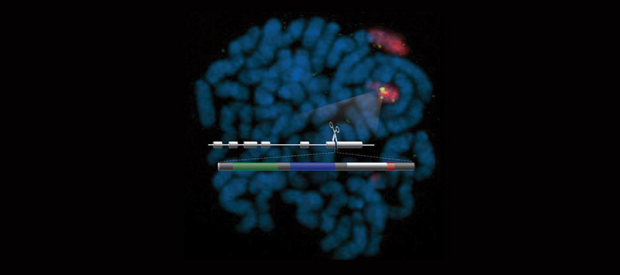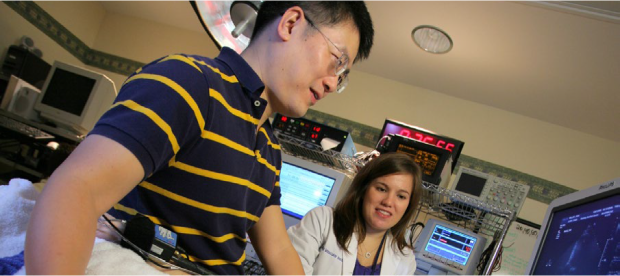Generalizable Solutions
NCATS develops innovations that address persistent challenges found across multiple research initiatives or projects, or that span research on multiple diseases or conditions.
Stem Cell Cocktail Could Bring More Treatments for Many Diseases
Pluripotent stem cells are biomedical blank canvases. Capable of becoming nearly any type of cell in the body, these stem cells offer a potentially endless source of hard-to-get specialized cells that researchers need for testing new treatments for a wide range of diseases.
But stem cells have a problem: They’re sensitive.
The stress of living in a laboratory culture dish can damage their DNA and trigger cell death. That fragility is a barrier to stem cells’ achieving their full potential as a powerful research tool for many diseases and conditions. Too-sensitive stem cells can’t easily be made in the vast quantities scientists need.
Scientists in the NCATS Stem Cell Translation Laboratory have come up with a solution that works for a range of scenarios: Pour sensitive stem cells a calming cocktail.
An NCATS research team devised a four-part cocktail of small molecules that can protect a type of stem cell called induced pluripotent stem cells (iPSCs) from stress and preserve their normal structure and function. iPSCs are made by reprogramming skin or blood cells.
To find the right mix, the NCATS team tested more than 15,000 U.S. Food and Drug Administration–approved drugs and investigational small-molecule compounds from NCATS’ collections. They identified a unique combination, called CEPT, that greatly improved stem cell survival and reduced cell culture stress.
“The small-molecule cocktail is the cornerstone of every protocol we have developed, spanning the establishment of new iPSC lines to the generation of various human cell types, organoids and 3D models,” said Carlos Tristan, Ph.D., acting director of the NCATS Stem Cell Translation Laboratory. “It’s truly exciting to see the widespread adoption of this cocktail by leaders in both the private and public sectors within the fields of stem cell biology and regenerative medicine.”
For example, the CEPT cocktail dramatically improved stem cells’ survival during freezing and thawing, a key step in using the cells for biomedical research. CEPT had a similar protective effect on iPSCs that had already developed into heart cells, motor neurons and other cell types.
“Because they offer new ways to protect stem cells from damage, these results could eventually have wide-ranging implications for many different diseases, including cancer, Alzheimer’s disease, neuromuscular disorders, and more,” said NCATS Director Joni L. Rutter, Ph.D.
Stem cell breakthroughs like the CEPT cocktail are just one of the many therapeutic tools and technologies that NCATS has developed to work across diseases. From tissue chips and gene therapy tools to clinical trial designs and big-data innovations, we seek what’s common across health research to find generalizable solutions that can work for many challenges.
Learn more about how NCATS advances stem cell technologies to speed research on a broad range of diseases and conditions.
More Generalizable Stories
A New Approach to Measure Gene Activity Could Speed Search for Rare Disease Therapies

SMART IRB Agreement Reaches 1,000 Signatories, Speeds Medical Trials



